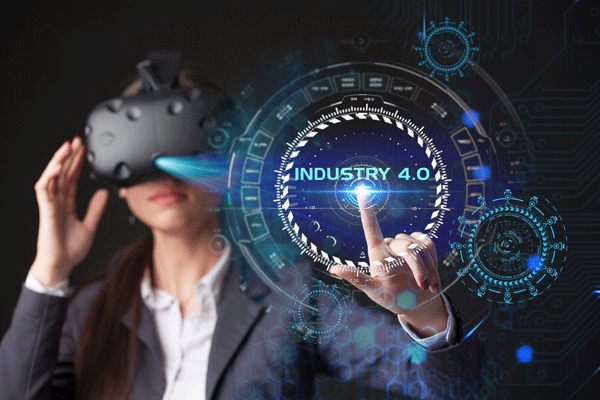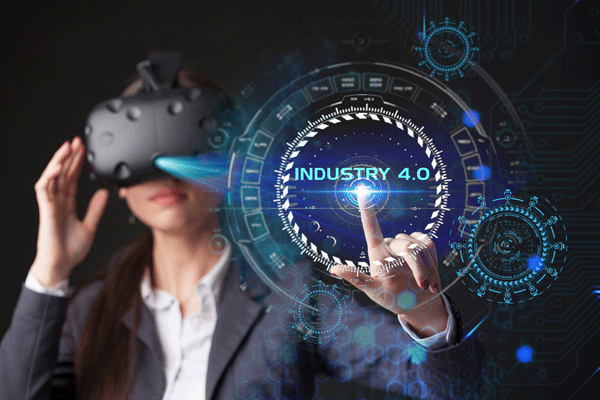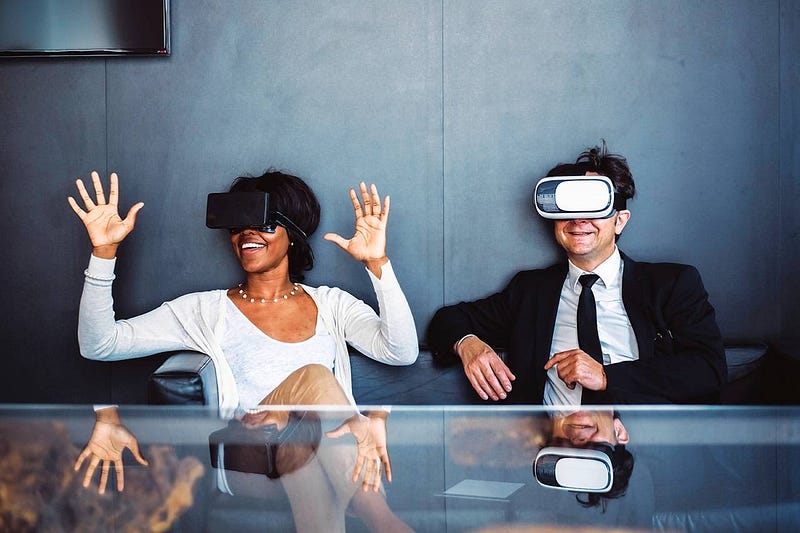Engineering the future
When we watched the “Minority report” a few years ago, everyone was appalled by the tech that could tell you whether there will be an error in human behavior sometime in the future.
While we were thinking about the ramifications of this kind of technology, XR showed us that the “Minority report” scenario is here, is called industrial XR, and is helping us increase the industrial outputs. When you think about it — XR is here to make necessary changes to human behavior before errors happen.
Coupled with data from the internet of things (IoT), the extended reality is changing the way people work and is actually driving modern industrial innovation.
Providing valuable data insights into the processes, methods, and procedures in the industrial workflow is helping us to shape the new way of thinking about the production while deepening our understanding of familiar concepts.

For organizations that have graduated from small-scale pilots to widespread adoption, the combination of XR and IoT is already changing the way people work. The industries currently regarded as the most advanced in their XR adoption are:
- manufacturing
- architecture,
- construction,
- logistics and
- healthcare
In the moment fo writing of this article, in June of 2020, there are already companies that made tremendous leaps in the field of XR industrial applications. Already, the XR industrial market is projected to be worth 27 billion dollars by 2023. Not bad for such a young industry.
One of the great sides of industrial XR is in its versatility — if we are to take the manufacturing industry, for example, we can easily see that XR can be implemented through all of its phases:
- Design phase — VR, AR/MR
- Learning phase — VR, AR/MR
- Operational phase — AR/MR
- Disruptive phase — AR/MR
With all this being said, there is no question about industrial environments adopting XR. In our eyes, we see no other, more convenient or useful way to unwrap the gifts industry 4.0 brought to us.
One special area that we believe will achieve tremendous growth within the XR industrial area is VR education.
Since we are living in the times of Industry 4.0, we can see that the global industrial complex is ever-expanding, needing millions of professionals of every level to support its growth. However, a combination of demography entering the industrial workforce and the fact that most of the big industrial are present in multiple locations suggests that:
- on-boarding processes training
- safety procedures training
- maintenance procedures training
- operating activities training
will need to be carried out with increased levels of speediness, as the demand for skilled industrial workers is on the rise. In short, industrial workers will have to learn more information, faster.
As we can see from the “University of Maryland” research coming from 2018 — information presented to the students through VR had an 8.8% increase in information recall accuracy.
In the same time, a study was done by the Department of Psychology at the “University of Regensburg”. The study found the most effective methods of teaching using VR was when the user’s emotions are aroused. Researchers made a connection between learning curves and how involved users actually were during their experience. VR simulations are made interactive so users are more present. Essentially, immersive learning serves to optimize the efficiency of training while enhancing the learning experience — making VR training safer, faster, and in the end, more cost-effective than other available methods.
There are already multiple big-name companies introducing VR in their business processes.
For example, ExxonMobil is using VR for safety training. Users can put on a helmet and headphones, grab a controller, and plug into the virtual world, engaging multiple senses simultaneously. Long after the scenario is over, skills obtained remain relevant. For energetics industry operators, practice in a digital simulation is a lesson rather than a game.
Volkswagen Group has revealed the next step of it’s VR training plans in the form of a global initiative that is to bring VR training to 10,000 employees of Audi, SEAT, SKODA, and Volkswagen together into more than 30 VR training experiences, covering a wide array of topics — from car part installation to customer service.
Here at Delta Reality, we are committed to developing our VR health and safety project that is fitted especially for energetics sector maintenance and safety standards needs — the project was developed with the help of a large EU-based industrial system, and we expect it to be adopted in early 2021.
Coming into the field, we are witnessing a spectacular new way to engage, immerse, and teach the employees. The difference from other ways of learning and onboarding is very simple — when engaged in an immersive way, people learn faster and with better quality.
Therefore, it is safe to say that VR education is here to stay — cutting costs of onboarding, decreasing the response time in dire times, and enabling the fine-tuning of the ever-growing workforce.
We propose that, as the times will move on, VR education will slowly but surely meld into the collaborative education — innovation model; where workers will be able to streamline their work processes through mutual recommendations and discussions in real-time. This will have insurmountable consequences; operational workers will be faster in their work while more in-touch with the security procedures. Engineers will be able to closely monitor and adapt to new scenarios up to 20% faster. Managers will be able to pinpoint pain points in operational processes and solve them in real-time, as opposed to scheduled self-standing processes updating projects.
In the end, we are looking forward to the new era of industrial/engineering/manufacturing feats. Seeing all the engineering marvels done so far, we cannot but smile thinking about the near future filled with safer, faster, and streamlined industrial processes and all the economical and societal advancements this will bring.




![[Review] HP Reverb G2 Review & Oculus Quest 2](https://deltar.borealis.biz/wp-content/uploads/2021/02/1_BkSqnZVBxmV8jBruPozuKw.jpg)